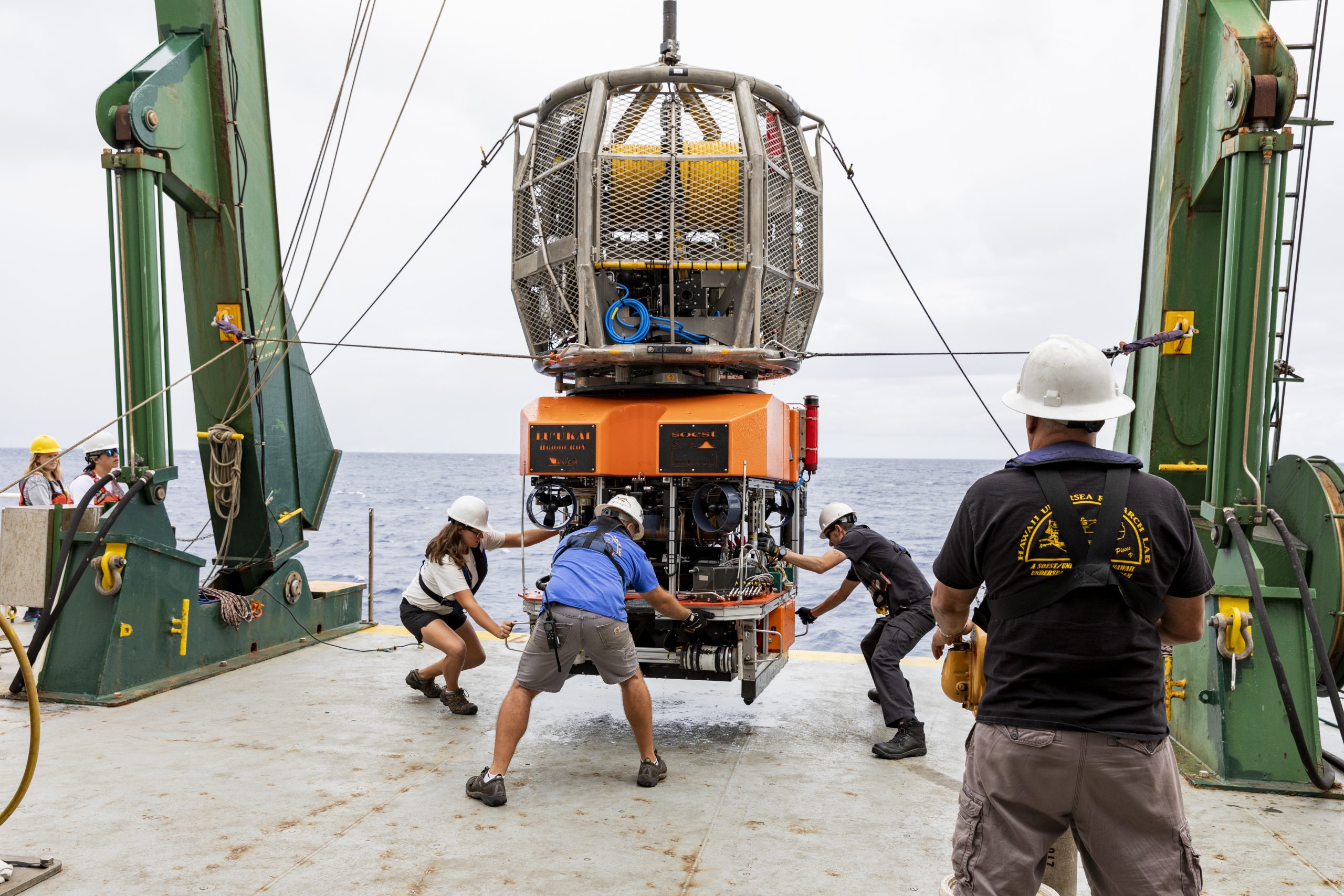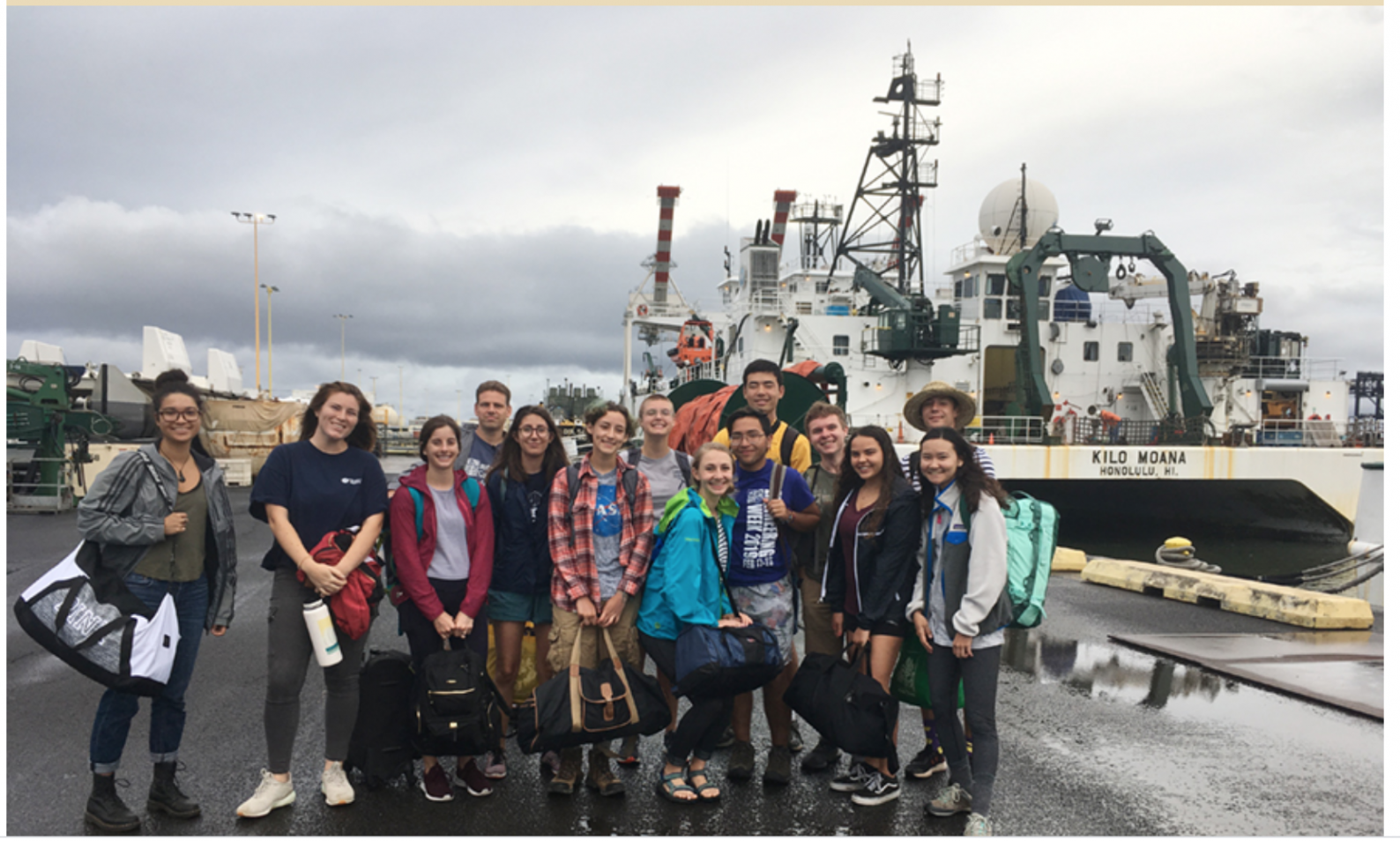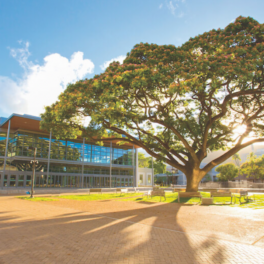Join live-streaming dives to the deepest ocean cabled observatory!
 ROV Lu'ukai being recovered on the back deck of research vessel Kilo Moana.
ROV Lu'ukai being recovered on the back deck of research vessel Kilo Moana.There has been a change to the cruise schedule. The new cruise dates are May 29 – June 2. Updated dive times will be posted here soon.
This month, you can join the action during the 2021 Aloha Cabled Observatory-Research Experience for Undergraduates cruise! Dives will be live streamed from the UH research vessel Kilo Moana using the remotely operated vehicle (ROV) Luʻukai.
A team of UH researchers and students from across the country will guide the ROV at the ALOHA Cabled Observatory–the deepest cabled observatory in the world–located 60 miles north of Oahu, Hawai‘i. Video from the ROV will be live-streamed from nearly 3 miles below the surface of the ocean.
Viewers can watch the livestream from Luʻukai (click here or watch below):
ALOHA Cabled Observatory
The ALOHA Cabled Observatory (ACO) is the deepest operating ocean observatory on the planet that provides power and internet communications to scientific instruments on the seafloor. The development and deployment of the nearly 3-mile deep observatory was led by SOEST over 10 years ago and supported by grants from the National Science Foundation to UH Mānoa.
Goals of 2021 cruise to ACO will focus on maintenance of the equipment at the site and will require the advanced technical expertise of ROV Luʻukai. The team will also deploy a new camera system and a scientific instrument to measure salinity, temperature and depth that will be connected to the observatory and remain at depth.
Research Experience for Undergraduates and high school students
The Earth Science on Volcanic Islands Research Experience for Undergraduates (REU) Program at UHM offers 10 motivated undergraduates the opportunity to engage in independent research with scientist mentors at the University of Hawai‘i at Mānoa. Students in this 9-week summer program participate in research projects related to a wide range of Earth Science and Oceanographic topics, including volcano studies at active and inactive Hawaiian volcanoes, environmental science in tropical watersheds and coastal environments or mapping and modeling of Earth processes.

Typically this summer program involves a multi-day research cruise, however, due to COVID-19 students will join the cruise virtually and we welcome the public, community groups and school groups to come along!
High school students in the EPʻIK Summer program will also join the dive viewing parties. Additionally, during the EPʻIK Summer program in June, students will participate in an “ocean exploration” workshop aligned with the ACO cruise activities with a chance to interact with SOEST scientists at sea. This year’s EPʻIK Summer cohort brings together students from Oahu, Maui, and Big Island.
Luʻukai
Imagine dropping something three miles down into the ocean and trying to find it in the dark! That’s exactly what the pilots operating Luʻukai will be tasked with. Using all the advanced technology and cutting-edge engineering developments on the ROV, the researchers will work as a team to connect the new equipment (camera and sensors) to the observatory.
Luʻukai is small but mighty–maneuverable and well-equipped to perform tasks that very few submersibles in the world are capable of.
Voice of the Sea
The award-winning television show Voice of the Sea will join the adventure and document the exciting events and developments of the cruise. Stay tuned for more information to find out when the episode will air.



